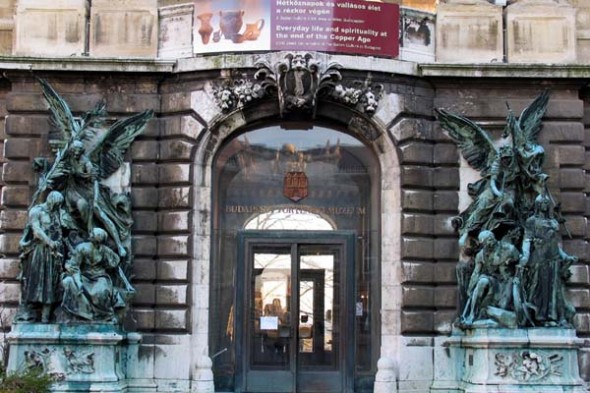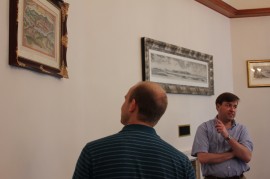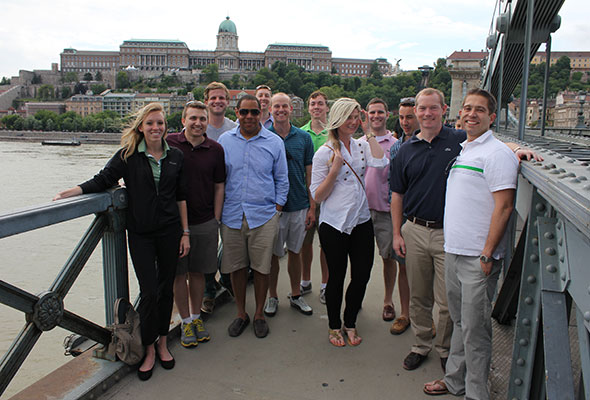On our first day in Budapest, our Hungarian professor Kristian Orban gave us a lecture about the history of Hungary and its effect on the mindset of the Hungarian people. The whole lecture was interesting but one line stuck with us the most. Orban joked: “Hungary is the St. Louis of Europe.”
He made the joke while describing one of the brief periods of prosperity and industrialization in Budapest’s history. In 1867, the Austrian Empire, compromised with the unrelenting Hungarian separatists to rename the empire the Austro-Hungarian Empire. Under the new empire, Buda and Pest were combined to become Budapest and Budapest grew into the booming modern capital of a significant empire. This was the peak of Budapest’s history and the wealth of the city can be seen in the beautiful architecture that shapes the city.
St. Louis also has a grand past. After the Civil War, it grew to be America’s fourth largest city. St. Louis hosted the World’s Fair and the summer Olympics. It also became a music hub and home to two major league baseball teams. Throughout the late 19th century, St. Louis attracted large and growing companies. New beautiful buildings popped up all over Downtown St. Louis and many of those are still standing today.
Today, St. Louis and Budapest are both optimistic that their future can be as bright as their pasts. We could, thus, easily see the historical similarities between the two cities but it took us the rest of the trip to understand that they are similar in other ways as well.
![photo 1[2]](https://olinblog.wustl.edu/wp-content/uploads/2014/05/photo-12-e1400359084541-300x400.jpg) At a mixer with Cornivus, the Hungarian students described the growing amount of human capital. They explained that education used to be free and is still inexpensive so many Hungarians are pursuing multiple degrees. The country has now been relatively stable politically for about 25 years and that has created the opportunity to develop a generation of well educated people. That generation is choosing to stay in Hungary.
At a mixer with Cornivus, the Hungarian students described the growing amount of human capital. They explained that education used to be free and is still inexpensive so many Hungarians are pursuing multiple degrees. The country has now been relatively stable politically for about 25 years and that has created the opportunity to develop a generation of well educated people. That generation is choosing to stay in Hungary.
In a different conversation, some of the analysts at Oriens – which is the private equity firm founded by Professor Orban – described Budapest’s growing financial and tech sector. Hungary is one of the five countries in Europe that received the most VC investment relative to its GDP in 2012. Prezi is a Hungarian startup that has gained international recognition. LogMeIn is a Hungarian startup that went public on the NASDAQ. Deloitte, McKinsey, BCG, and Morgan Stanley all have large offices in Budapest.
From our own experiences in St. Louis, the amount of human capital and the tech sector are also growing. Articles in multiple publications have demonstrated that young people are migrating to St. Louis to benefit from the low cost of living. Universities like SLU and Wash U are growing in prominence and attracting more and more talent in the form of students and professors. Prominent figures like Square’s Jim McKelvey are coming back to St. Louis to invest in the city’s startups. McKelvey has also started Launchcode in St. Louis to increase the number of developers and job opportunities.
Now that our time in Budapest is coming to a close, we have reflected back on our week and what we have learned from our experiences. While St. Louis and Budapest still have many differences, their similarities suggest that both cities have a bright future.
Juan Espinosa
David Clark
Jolijt Tamanaha
Kathleen Szabo
Students in the Venture Advising Consulting Course taught by Clifford Holekamp, senior lecturer in entrepreneurship, spent 10 days in Budapest, Hungary this month working with real startups, solving real problems, and learning about Eastern European history and culture. Each team in this year’s course submitted a blog post about their experience.
Image: Budapest Heroes Monument, Giannis Arvanitakis, Flickr creative commons



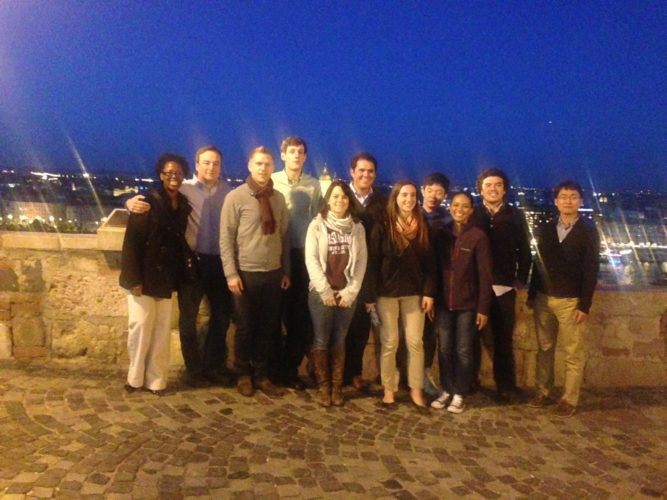
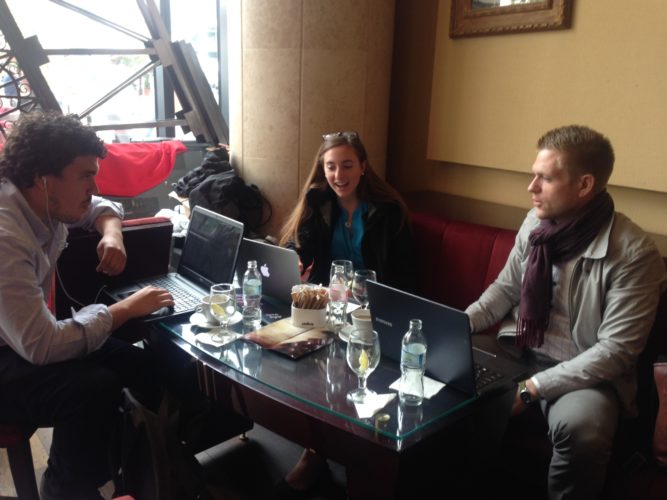
![photo 1[1]](https://olinblog.wustl.edu/wp-content/uploads/2014/05/photo-11-533x400.jpg) Our team, consisting of Olin’s Nelson Nolte (PMBA 34), Lena Wang (MBA ’15), Jaemin Ryu (MBA ’15) and Connor Jacobs (BS Systems Eng.), worked with startup !444! (http://444.hu), an edgy Hungarian language media site. !444! asked us to investigate alternative strategies that !444! could implement to increase its revenue and profitability in the challenging world of online media.
Our team, consisting of Olin’s Nelson Nolte (PMBA 34), Lena Wang (MBA ’15), Jaemin Ryu (MBA ’15) and Connor Jacobs (BS Systems Eng.), worked with startup !444! (http://444.hu), an edgy Hungarian language media site. !444! asked us to investigate alternative strategies that !444! could implement to increase its revenue and profitability in the challenging world of online media.